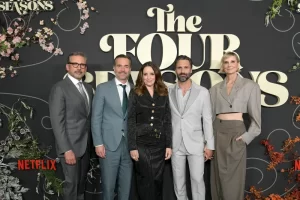The mother of two sisters murdered by a teenager who was obsessed with demons has warned he will be ‘a killing machine’ by the time he gets out of prison.
Mina Smallman, whose daughters Bibaa Henry and Nicole Smallman were savagely stabbed as they celebrated a birthday in a park last June, spoke out following Danyal Hussein’s conviction at the Old Bailey on Tuesday.
The 19-year-old used his own blood to sign a deal with a mythical demon pledging to kill six women every six months in exchange for winning the Mega Millions Super Jackpot of £321 million.
Detectives have said Hussein would likely have killed again had he not been tracked down so quickly.
Speaking after the case, Detective Chief Inspector Simon Harding said: ‘I firmly believe he would have carried out his contract.
‘He would have carried on killing women, until he had killed the first six. If he had not won the lottery by that stage – every six months is what he said.’
Jurors at his trial were not told of the extent of Hussein’s obsession with demons, spells and potions.
It also emerged afterwards that he had come to the attention of police aged just 15 over fears he was vulnerable to radicalisation and violent extremism.
Mrs Smallman, a retired Church of England cleric, told BBC news: ‘The problem is the people who are supposed to be assessing and taking responsibility, there’s a gap from stage to stage so they get lost in the system.
‘The saddest thing is, if this young man does have this tendency, when he goes into prison he is going to be even more radicalised.
‘He is a killer now, he’ll be a killing machine by the time he comes out.’
Hussein had been on a de-radicalisation programme between October and May after being referred to the Prevent scheme by his school.
Following his arrest, police found he had communication with others about demons and love potions, and carried out online research about the far-right and Norse mythology.
Mrs Smallman said law enforcement should be allowed access to all communication devices belonging to those suspected of extremism.
She told the BBC: ‘Once they have proven that they are not working within the right systems, they’re not in a good place, we need to be able to gain access to that information.’
The trial had heard how Hussein prepared for the killings by buying a set of knives from Asda, a black balaclava on Amazon and signing up to a lottery betting website.
In the early hours of June 6 last year, he stalked his victims as they celebrated Ms Henry’s birthday in Fryent Country Park in Wembley, north London, laughing and dancing with fairy lights.
Hussein took Ms Henry by surprise, stabbing her eight times, before he slashed Ms Smallman 28 times as she bravely fought back.
Hussein then dragged the women by the feet into bushes where they lay undiscovered for 36 hours, their limbs entwined.
During the savage attack, Hussein cut his right hand with the 12cm knife which he dropped in the grass.
Officers, who carried out a painstaking search, identified blood stains on the knife, bodies and surrounding scene all linked to the DNA of an unknown male.
The national DNA database failed to identify the sample but on June 30, in a major breakthrough, a DNA familial link was made to Hussein’s father, who had a past caution.
Within an hour and a half, pieces of the puzzle came together with Hussein being identified on CCTV buying knives in Asda and returning home after the murders.
Following his arrest, Hussein, who is of Iraqi Muslim decent, told police he had Asperger’s syndrome and trouble with his memory, then refused to answer questions.
Searches of his bedroom at his mother’s house in south-east London uncovered a book of spells, handwritten demon symbols and the two blood pacts.
Hussein disputed the overwhelming evidence against him but declined to go into the witness box.
He will be sentenced on September 22.






